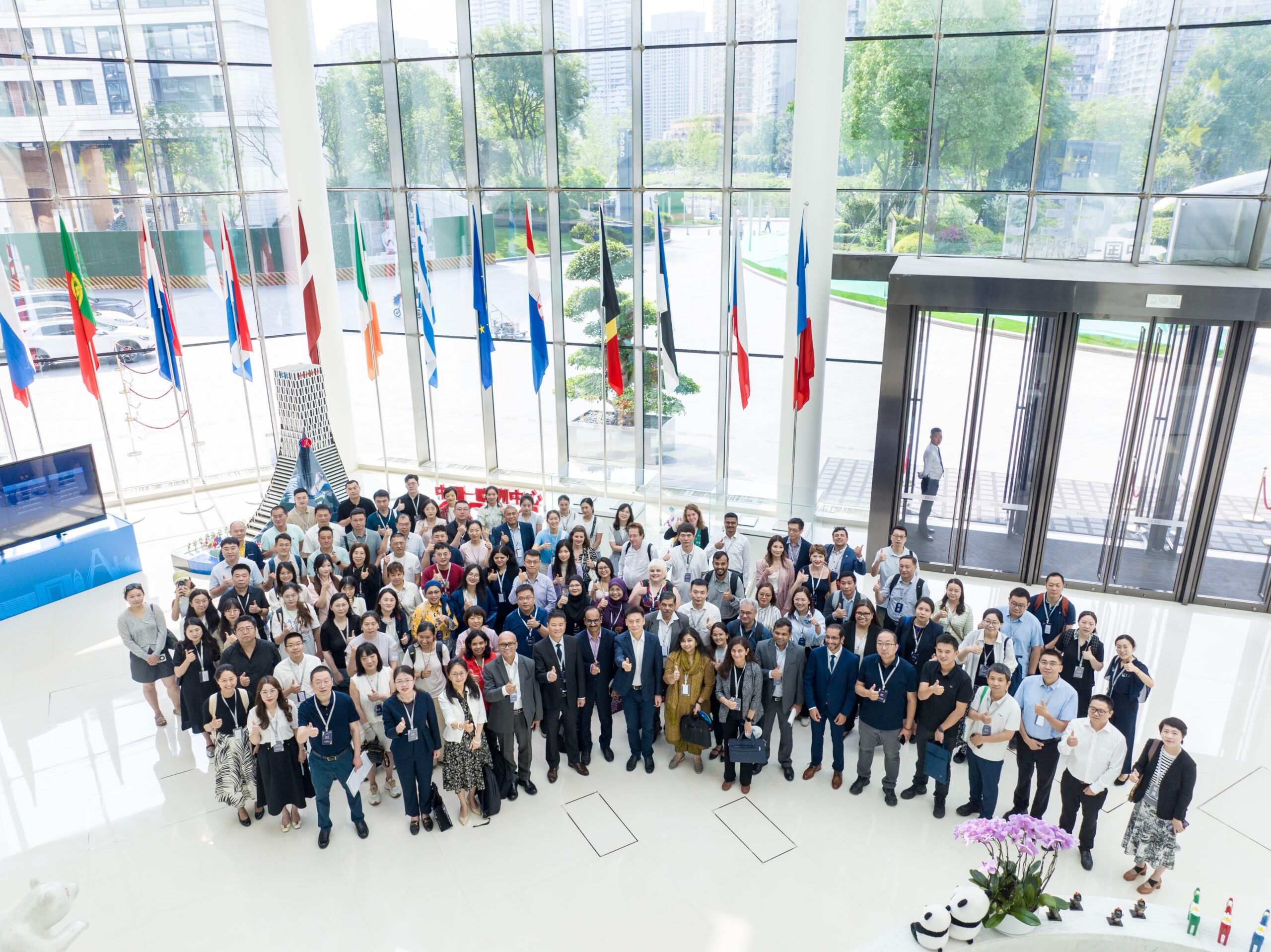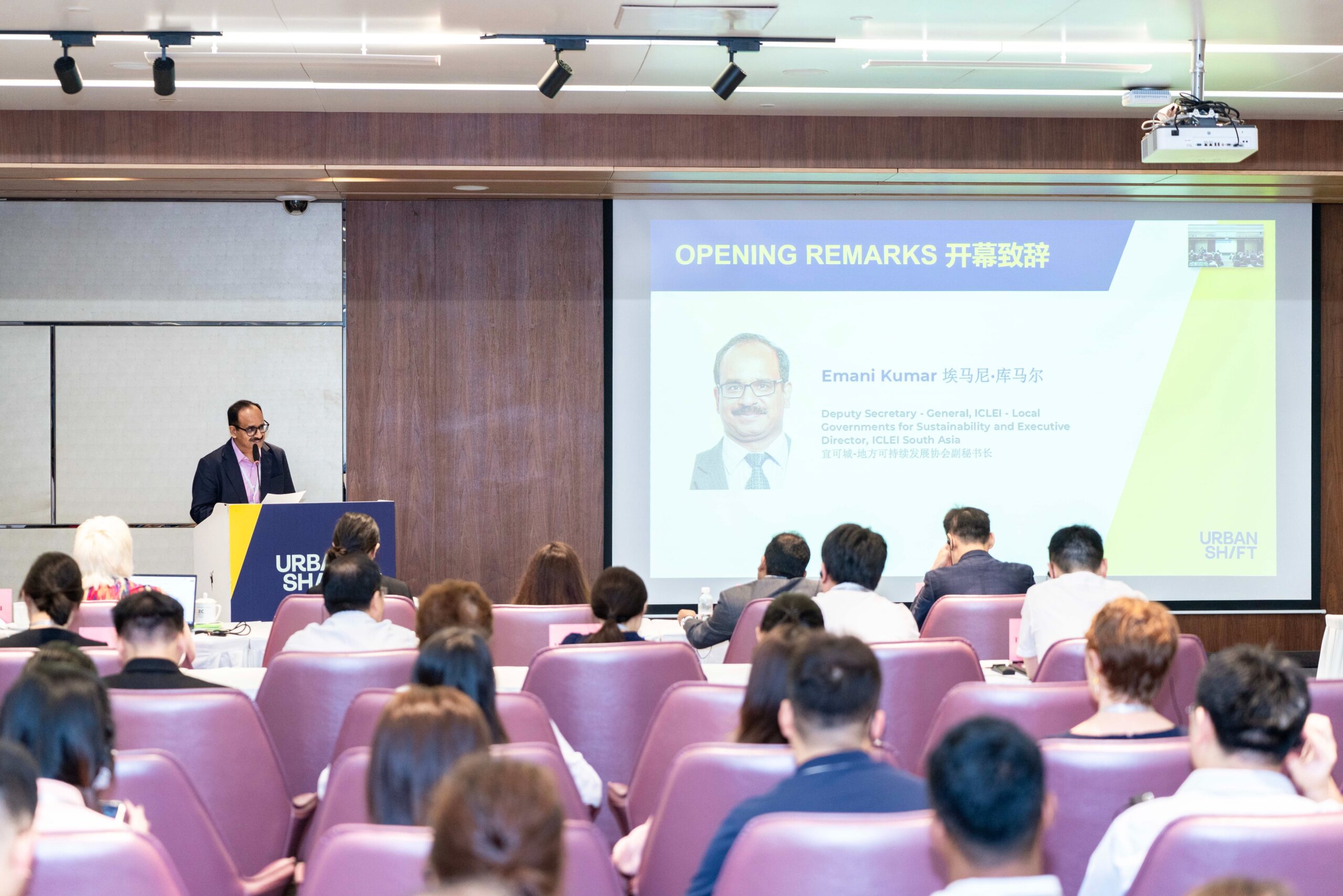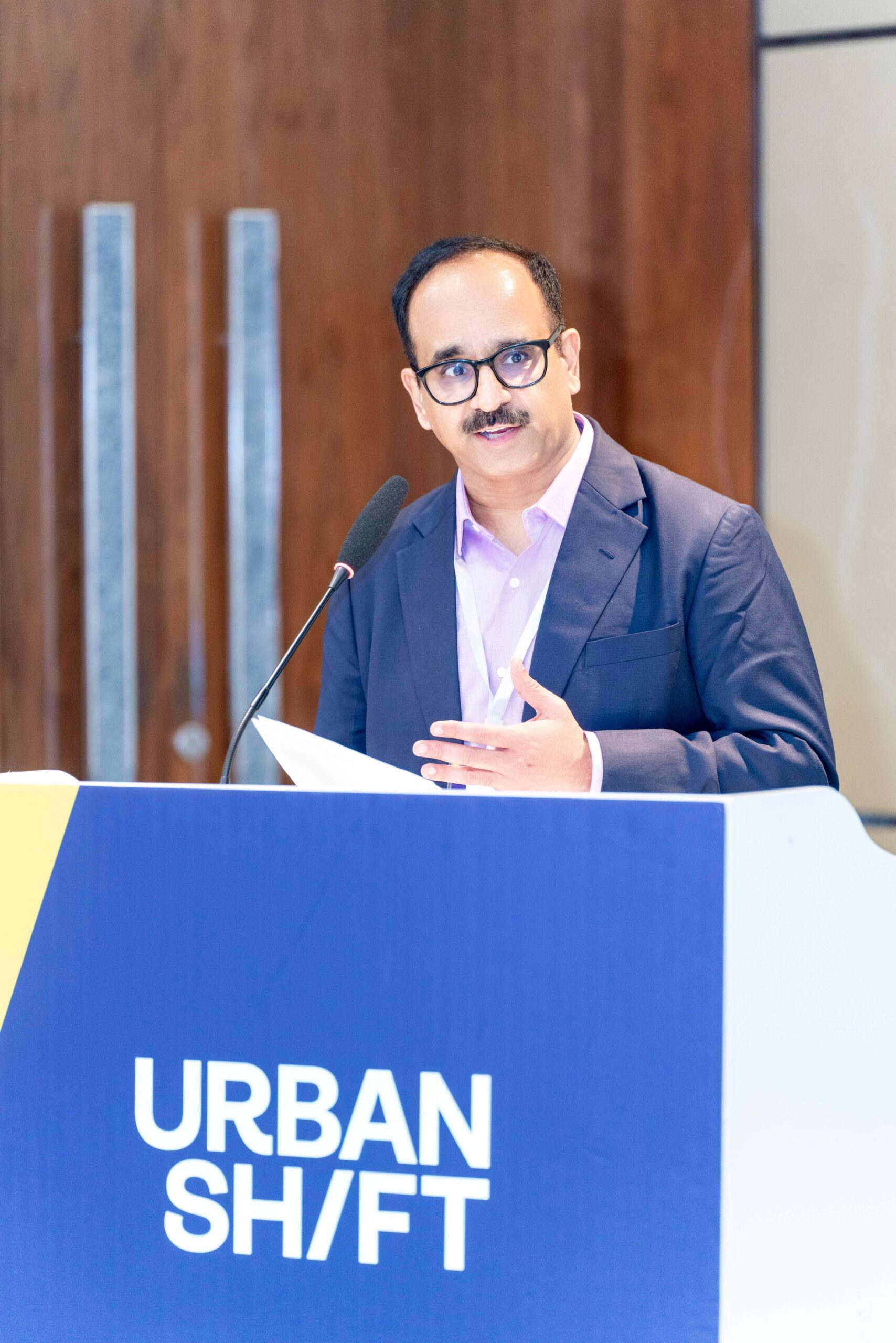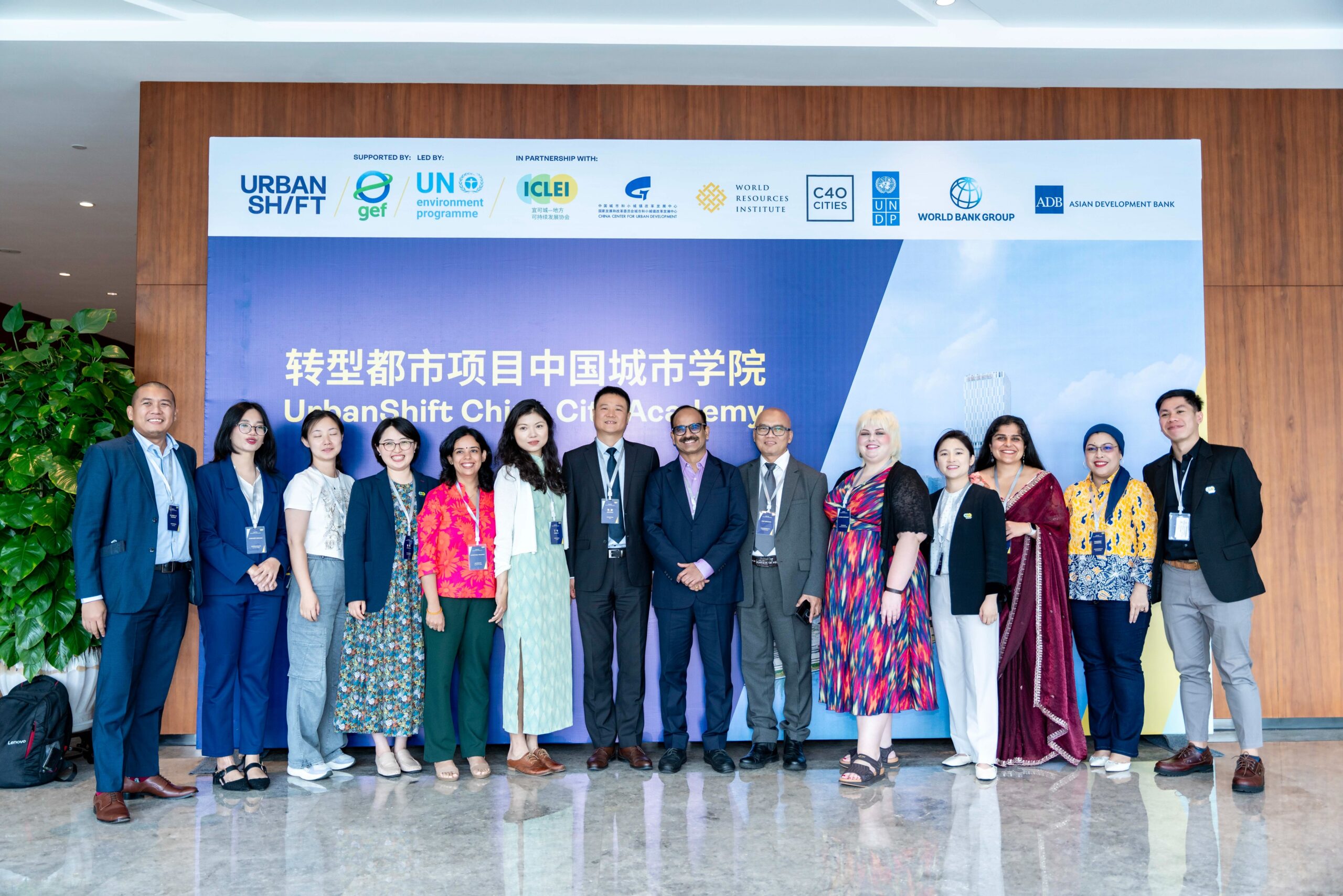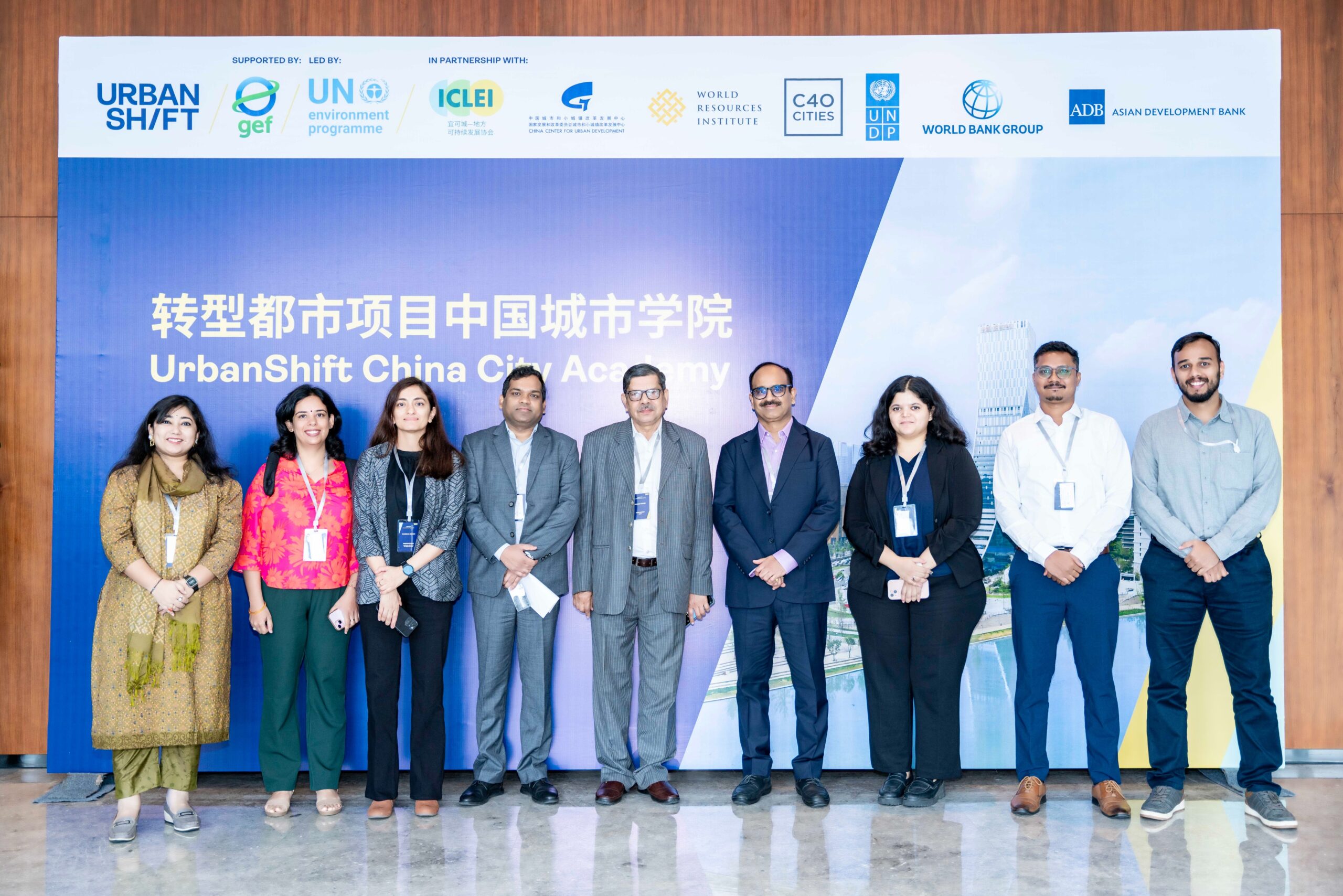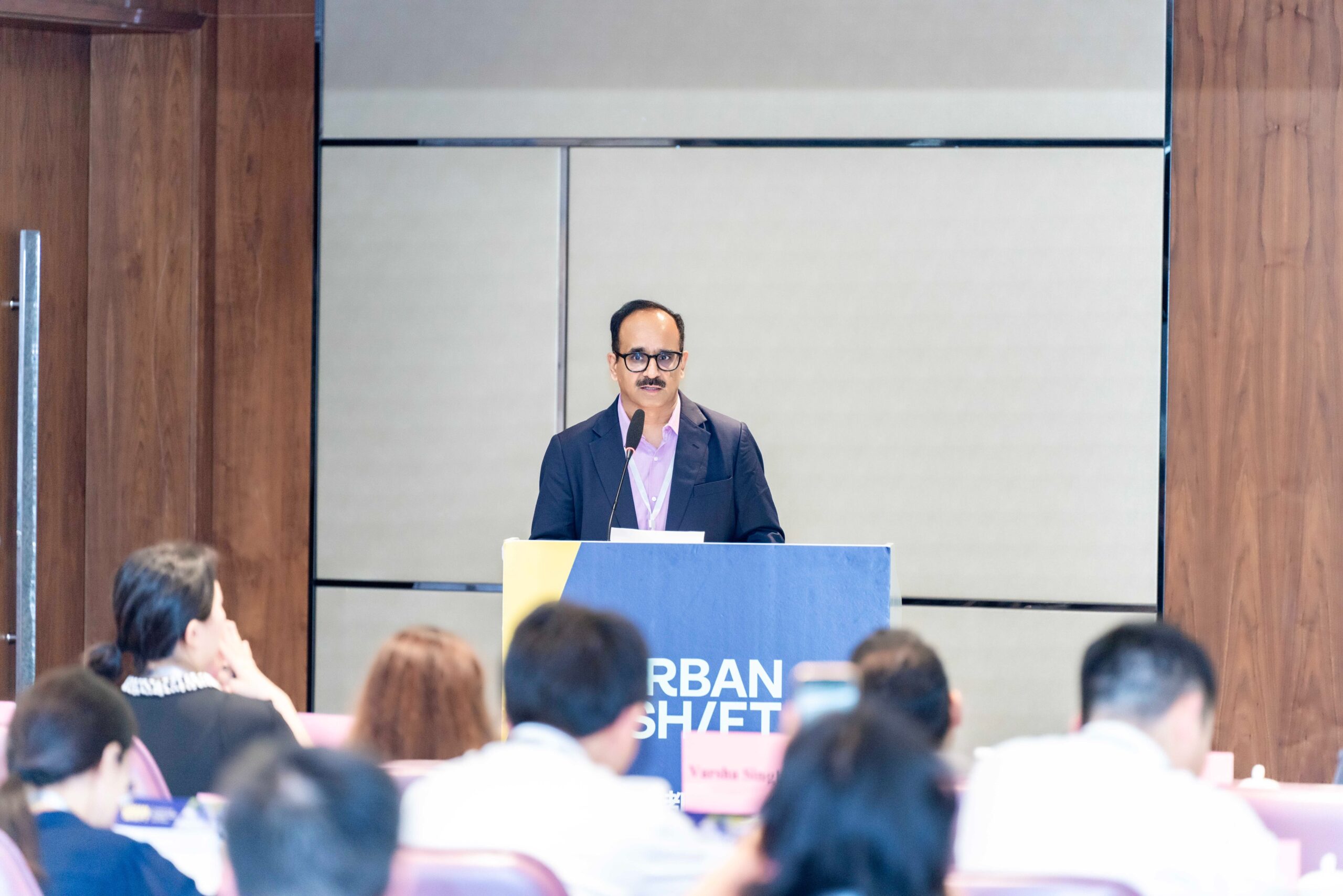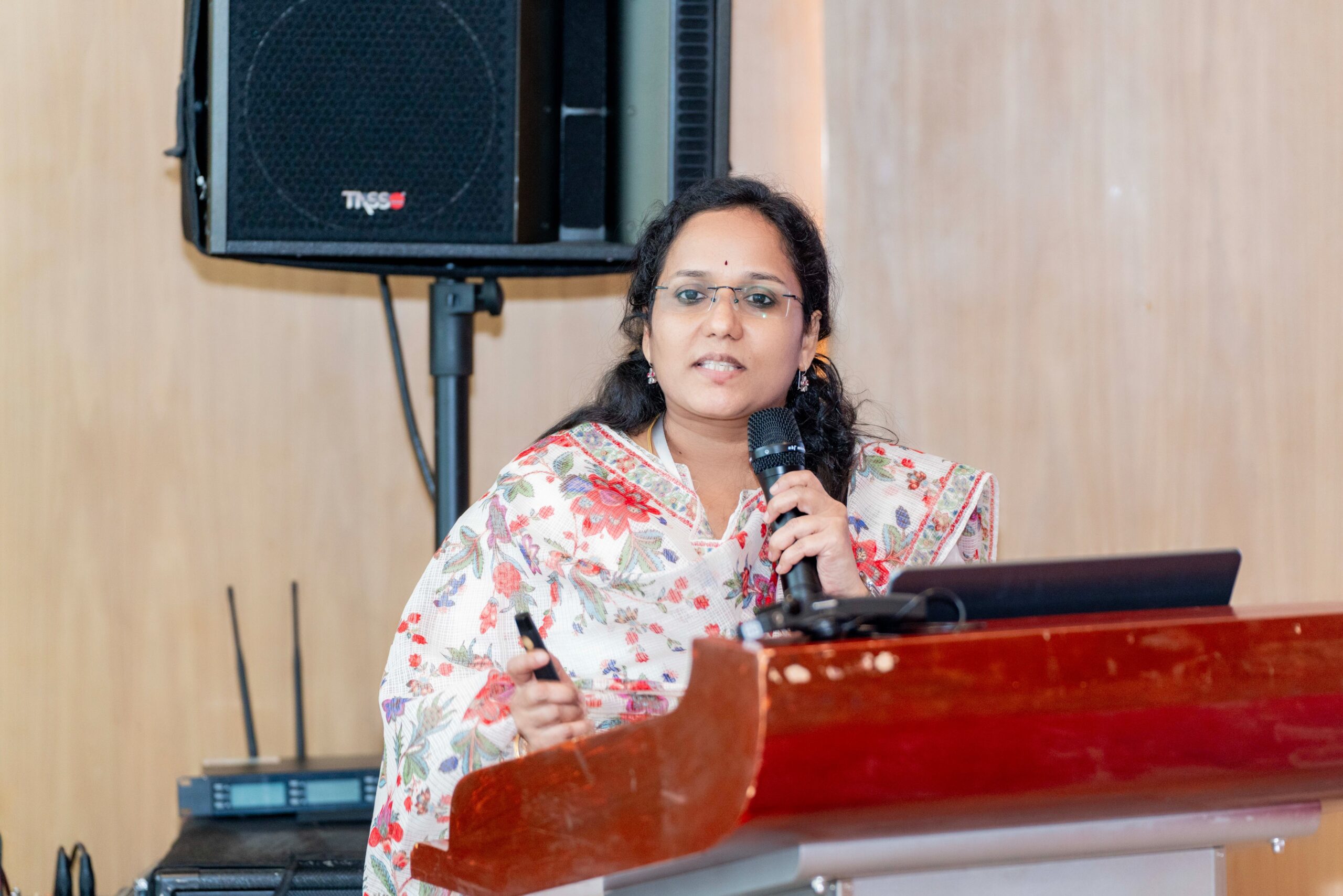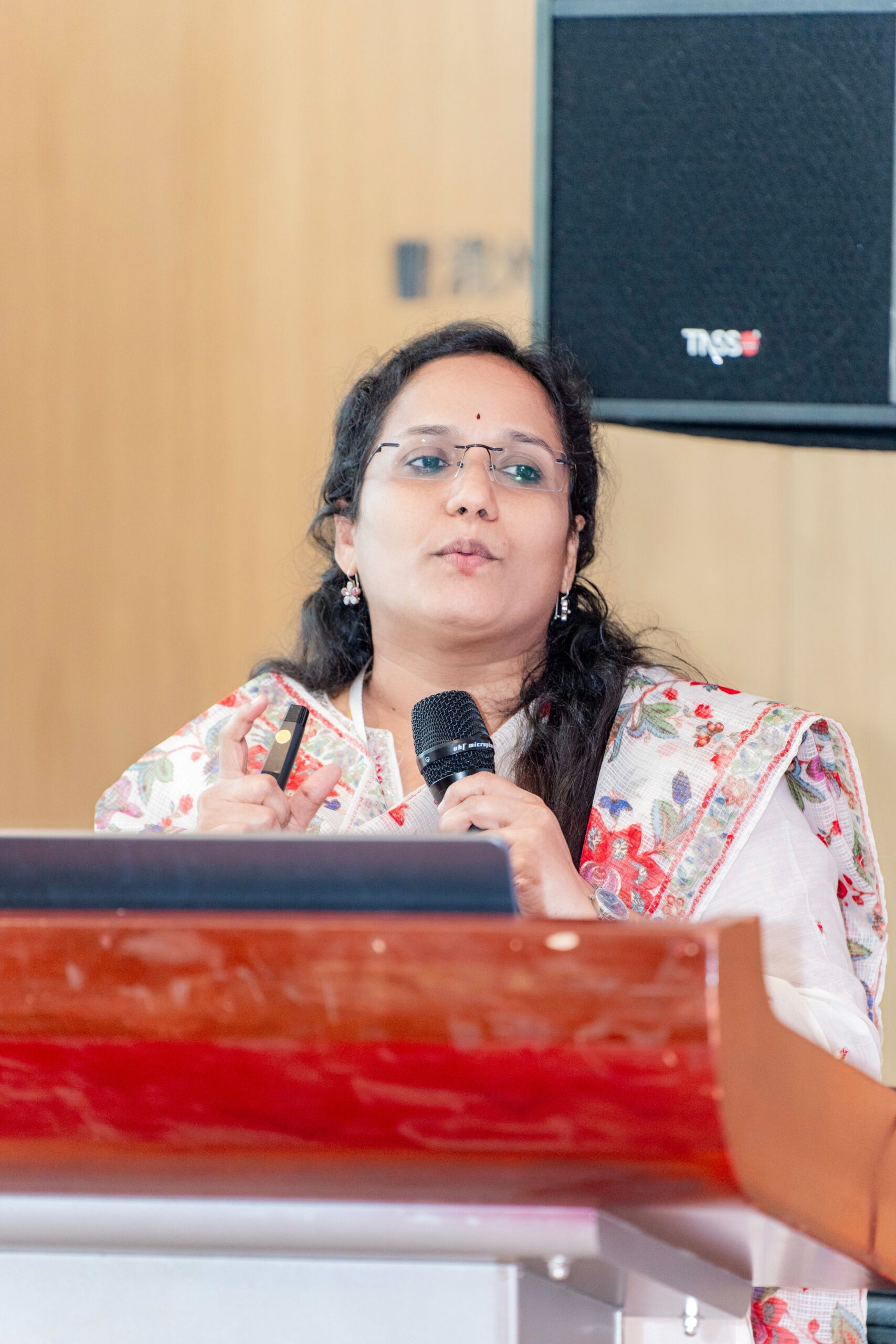UrbanShift China City Academy in Chengdu promotes the message of shared learning for Sustainable Urban Development

From 1 to 3 July 2025, Chengdu, China, hosted the UrbanShift China City Academy, an intensive capacity-building and knowledge-exchange platform that brought together officials from China, India, Malaysia, Mongolia, and the Philippines. Co-organised by UrbanShift, the China Centre for Urban Development (CCUD), and ICLEI, the three-day event aimed to equip local and subnational governments with tools and strategies to drive sustainable urban development and align city-level action with national climate goals.
The Academy offered two thematic courses: “Green and Thriving Neighborhoods,” led by the UN Environment Programme (UNEP) with support from C40 Cities and UN-Habitat, and “Urban Biodiversity,” led by the World Resources Institute (WRI). These themes explored ways cities can improve livability, integrate nature-based solutions into urban planning, design inclusive neighbourhoods, and enhance climate resilience. The programme combined expert inputs, interactive discussions, and peer learning sessions.
Speakers included representatives from UNEP, WRI, ICLEI, UN-Habitat, and government officials from Shijiazhuang, Guangzhou, Quezon City, Anji County, Melaka, Puducherry, and the National Institute of Urban Affairs, India, facilitating an informative exchange of global best practices and local innovations.
Puducherry showcases green innovations
Representing Puducherry as a replication project city under the UrbanShift programme, Dr. Muthamma Ammavasai, Commissioner-cum-Secretary, Public Works Department (Planning & Research), Government of Puducherry, joined the Green and Thriving Neighbourhoods course. She spoke at the session on “People-Centered and Nature-Positive Public Spaces,” highlighting Puducherry’s efforts to increase urban green cover in densely populated areas.
With only 3.91 sq km of its 70.10 sq km urban area dedicated to public spaces, Puducherry faces a significant green space deficit, making its initiatives crucial for improving the city’s livability. However, the city showcases several notable efforts to advance urban sustainability.
It includes efforts by the Department of Forest and Wildlife to carry out extensive tree plantation activities under the Government of India’s initiative “Ek Ped Maa Ke Naam,” with support from self-help groups, community volunteers, students, and NGOs. In 2024, Puducherry successfully conducted a carbon-neutral parliamentary election by planting trees, enforcing banner bans, reusing election materials, and encouraging people to walk to vote. The city has focused on conscious tree plantation by carefully selecting the right plant species for the right place and purpose, while also developing vertical green areas along roadsides, riversides, and railways. Puducherry has proposed to promote the use of AI-driven geospatial technologies for surveying, data gathering, monitoring, and managing natural resources, while also developing an AI-based Nature Interpretation Centre with support from the Government of India to foster environmental awareness and conservation, especially among the youth.
These initiatives demonstrate Puducherry’s commitment to integrating nature-based solutions into city planning, despite its limited urban green footprint, making it a replicable example for other rapidly urbanising cities in South Asia.
Emani Kumar calls for regional collaboration
Emani Kumar, Deputy Secretary General, ICLEI, and Executive Director, ICLEI South Asia, delivered a keynote address at the opening session on 1 July at the Chengdu Centre for China-Europe Cooperation. Mr. Kumar emphasised how the UrbanShift City Academy serves as a critical platform for knowledge-sharing and capacity building, allowing cities to learn from each other and co-create solutions for low-carbon, climate-resilient, and inclusive urban development.
He highlighted that the event at Chengdu was the third UrbanShift City Academy programme in Asia, following New Delhi and Jakarta. Across these events, a broad set of urban themes were addressed, including climate finance, integrated urban growth management, climate action planning, circular economy, nature-based solutions, urban diversity, and thriving neighbourhoods, all crucial for meeting global sustainable development goals and urban agendas.
Drawing attention to global collaboration efforts South and Southeast Asia, Mr. Kumar drew attention towards the upcoming opportunities for continued engagements, such as the ASEAN Mayors’ Forum in Kuala Lumpur, Malaysia (August 2025) and the ARISE Cities Forum in New Delhi, India (October 2025), which aim at fostering regional collaboration and multi-level partnerships to strengthen sustainable urban transitions.
The UrbanShift China City Academy underscored the importance of cross-country collaboration in tackling urban sustainability challenges. Through its dual focus on green neighbourhoods and urban biodiversity, the programme facilitated deep dives into planning tools, governance models, and innovative financing solutions to support cities in meeting climate targets while improving the quality of life for residents.
The initiative offers online and in-person learning opportunities, ensuring that city officials and practitioners have access to global knowledge, tools, and networks needed to plan and build sustainable, nature-positive, and climate-resilient cities for the future.
